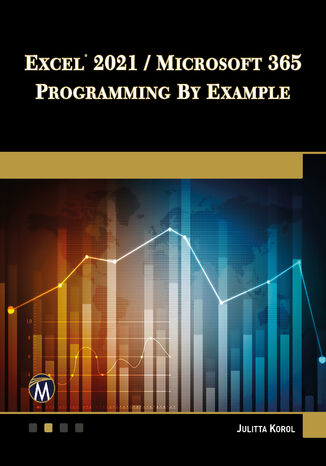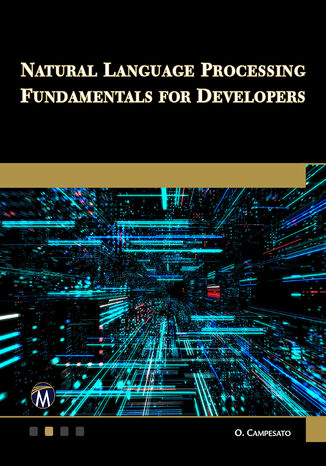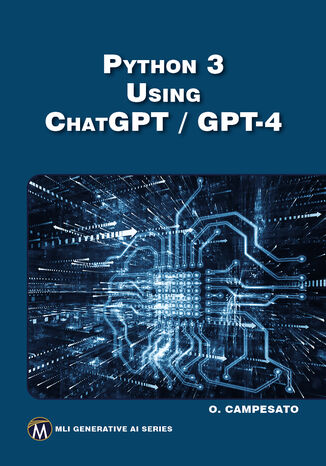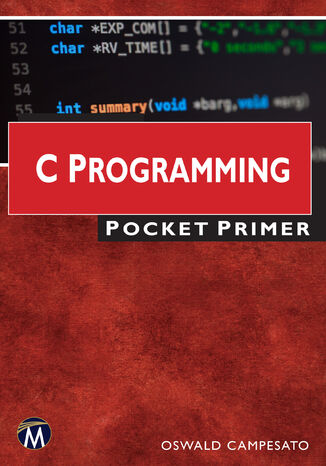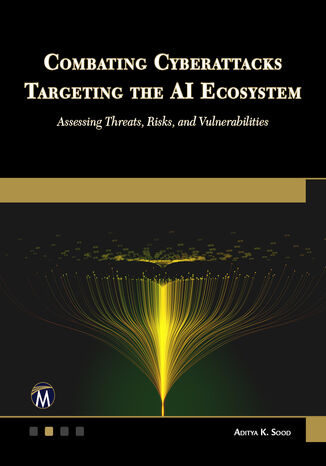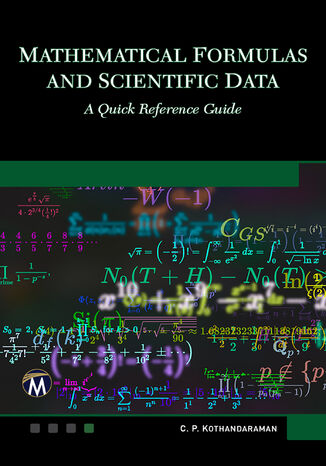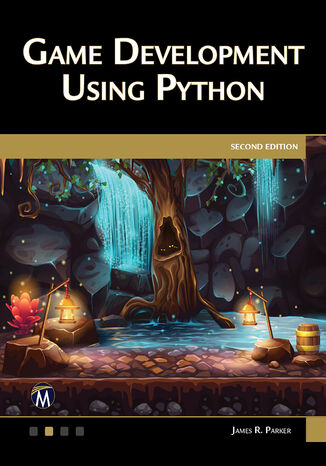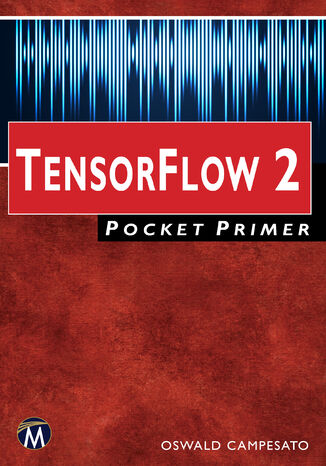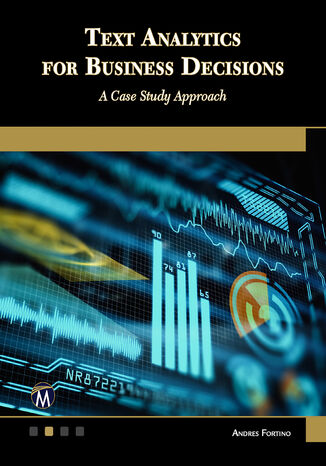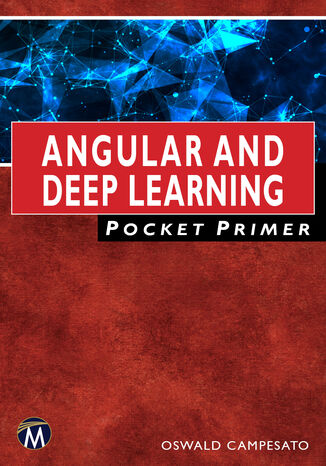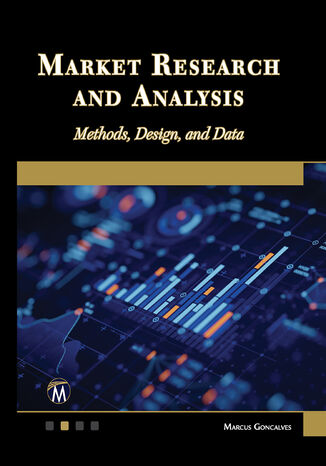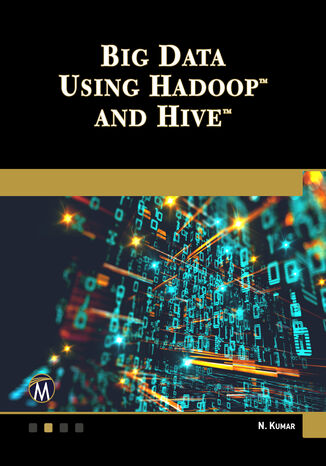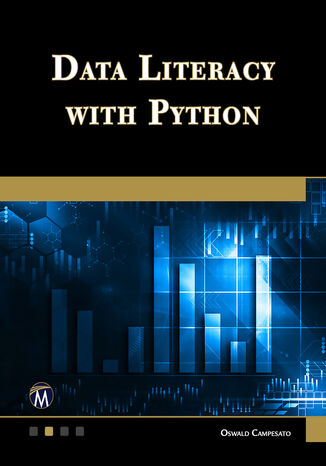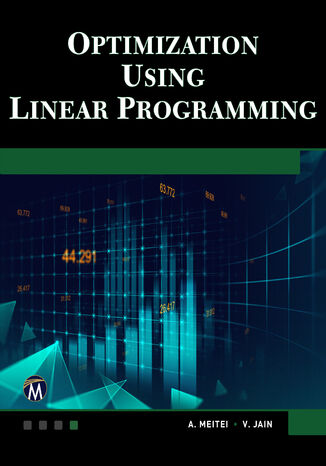Categories
Ebooks
-
Business and economy
- Bitcoin
- Businesswoman
- Coaching
- Controlling
- E-business
- Economy
- Finances
- Stocks and investments
- Personal competence
- Computer in the office
- Communication and negotiation
- Small company
- Marketing
- Motivation
- Multimedia trainings
- Real estate
- Persuasion and NLP
- Taxes
- Social policy
- Guides
- Presentations
- Leadership
- Public Relation
- Reports, analyses
- Secret
- Social Media
- Sales
- Start-up
- Your career
- Management
- Project management
- Human Resources
-
For children
-
For youth
-
Education
-
Encyclopedias, dictionaries
-
E-press
- Architektura i wnętrza
- Health and Safety
- Biznes i Ekonomia
- Home and garden
- E-business
- Ekonomia i finanse
- Esoterecism
- Finances
- Personal finance
- Business
- Photography
- Computer science
- HR & Payroll
- For women
- Computers, Excel
- Accounts
- Culture and literature
- Scientific and academic
- Environmental protection
- Opinion-forming
- Education
- Taxes
- Travelling
- Psychology
- Religion
- Agriculture
- Book and press market
- Transport and Spedition
- Healthand beauty
-
History
-
Computer science
- Office applications
- Data bases
- Bioinformatics
- IT business
- CAD/CAM
- Digital Lifestyle
- DTP
- Electronics
- Digital photography
- Computer graphics
- Games
- Hacking
- Hardware
- IT w ekonomii
- Scientific software package
- School textbooks
- Computer basics
- Programming
- Mobile programming
- Internet servers
- Computer networks
- Start-up
- Operational systems
- Artificial intelligence
- Technology for children
- Webmastering
-
Other
-
Foreign languages
-
Culture and art
-
School reading books
-
Literature
- Antology
- Ballade
- Biographies and autobiographies
- For adults
- Dramas
- Diaries, memoirs, letters
- Epic, epopee
- Essay
- Fantasy and science fiction
- Feuilletons
- Work of fiction
- Humour and satire
- Other
- Classical
- Crime fiction
- Non-fiction
- Fiction
- Mity i legendy
- Nobelists
- Novellas
- Moral
- Okultyzm i magia
- Short stories
- Memoirs
- Travelling
- Narrative poetry
- Poetry
- Politics
- Popular science
- Novel
- Historical novel
- Prose
- Adventure
- Journalism, publicism
- Reportage novels
- Romans i literatura obyczajowa
- Sensational
- Thriller, Horror
- Interviews and memoirs
-
Natural sciences
-
Social sciences
-
School textbooks
-
Popular science and academic
- Archeology
- Bibliotekoznawstwo
- Cinema studies
- Philology
- Polish philology
- Philosophy
- Finanse i bankowość
- Geography
- Economy
- Trade. World economy
- History and archeology
- History of art and architecture
- Cultural studies
- Linguistics
- Literary studies
- Logistics
- Maths
- Medicine
- Humanities
- Pedagogy
- Educational aids
- Popular science
- Other
- Psychology
- Sociology
- Theatre studies
- Theology
- Economic theories and teachings
- Transport i spedycja
- Physical education
- Zarządzanie i marketing
-
Guides
-
Game guides
-
Professional and specialist guides
-
Law
- Health and Safety
- History
- Road Code. Driving license
- Law studies
- Healthcare
- General. Compendium of knowledge
- Academic textbooks
- Other
- Construction and local law
- Civil law
- Financial law
- Economic law
- Economic and trade law
- Criminal law
- Criminal law. Criminal offenses. Criminology
- International law
- International law
- Health care law
- Educational law
- Tax law
- Labor and social security law
- Public, constitutional and administrative law
- Family and Guardianship Code
- agricultural law
- Social law, labour law
- European Union law
- Industry
- Agricultural and environmental
- Dictionaries and encyclopedia
- Public procurement
- Management
-
Tourist guides and travel
- Africa
- Albums
- Southern America
- North and Central America
- Australia, New Zealand, Oceania
- Austria
- Asia
- Balkans
- Middle East
- Bulgary
- China
- Croatia
- The Czech Republic
- Denmark
- Egipt
- Estonia
- Europe
- France
- Mountains
- Greece
- Spain
- Holand
- Iceland
- Lithuania
- Latvia
- Mapy, Plany miast, Atlasy
- Mini travel guides
- Germany
- Norway
- Active travelling
- Poland
- Portugal
- Other
- Przewodniki po hotelach i restauracjach
- Russia
- Romania
- Slovakia
- Slovenia
- Switzerland
- Sweden
- World
- Turkey
- Ukraine
- Hungary
- Great Britain
- Italy
-
Psychology
- Philosophy of life
- Kompetencje psychospołeczne
- Interpersonal communication
- Mindfulness
- General
- Persuasion and NLP
- Academic psychology
- Psychology of soul and mind
- Work psychology
- Relacje i związki
- Parenting and children psychology
- Problem solving
- Intellectual growth
- Secret
- Sexapeal
- Seduction
- Appearance and image
- Philosophy of life
-
Religion
-
Sport, fitness, diets
-
Technology and mechanics
Audiobooks
-
Business and economy
- Bitcoin
- Businesswoman
- Coaching
- Controlling
- E-business
- Economy
- Finances
- Stocks and investments
- Personal competence
- Communication and negotiation
- Small company
- Marketing
- Motivation
- Real estate
- Persuasion and NLP
- Taxes
- Social policy
- Guides
- Presentations
- Leadership
- Public Relation
- Secret
- Social Media
- Sales
- Start-up
- Your career
- Management
- Project management
- Human Resources
-
For children
-
For youth
-
Education
-
Encyclopedias, dictionaries
-
E-press
-
History
-
Computer science
-
Other
-
Foreign languages
-
Culture and art
-
School reading books
-
Literature
- Antology
- Ballade
- Biographies and autobiographies
- For adults
- Dramas
- Diaries, memoirs, letters
- Epic, epopee
- Essay
- Fantasy and science fiction
- Feuilletons
- Work of fiction
- Humour and satire
- Other
- Classical
- Crime fiction
- Non-fiction
- Fiction
- Mity i legendy
- Nobelists
- Novellas
- Moral
- Okultyzm i magia
- Short stories
- Memoirs
- Travelling
- Poetry
- Politics
- Popular science
- Novel
- Historical novel
- Prose
- Adventure
- Journalism, publicism
- Reportage novels
- Romans i literatura obyczajowa
- Sensational
- Thriller, Horror
- Interviews and memoirs
-
Natural sciences
-
Social sciences
-
Popular science and academic
-
Guides
-
Professional and specialist guides
-
Law
-
Tourist guides and travel
-
Psychology
- Philosophy of life
- Interpersonal communication
- Mindfulness
- General
- Persuasion and NLP
- Academic psychology
- Psychology of soul and mind
- Work psychology
- Relacje i związki
- Parenting and children psychology
- Problem solving
- Intellectual growth
- Secret
- Sexapeal
- Seduction
- Appearance and image
- Philosophy of life
-
Religion
-
Sport, fitness, diets
-
Technology and mechanics
Videocourses
-
Data bases
-
Big Data
-
Biznes, ekonomia i marketing
-
Cybersecurity
-
Data Science
-
DevOps
-
For children
-
Electronics
-
Graphics/Video/CAX
-
Games
-
Microsoft Office
-
Development tools
-
Programming
-
Personal growth
-
Computer networks
-
Operational systems
-
Software testing
-
Mobile devices
-
UX/UI
-
Web development
-
Management
Podcasts
AutoCAD 2025 3D Modeling. Master essential 3D modeling techniques with AutoCAD 2025
Mercury Learning and Information, Munir Hamad
Master the art of 3D modeling with this comprehensive book tailored for AutoCAD 2025. Designed for beginners and experienced users alike, this book begins with an introduction to the AutoCAD 3D environment, providing clear and concise instructions for navigating its interface and essential tools. By building a strong foundation, it sets the stage for more advanced techniques.As the chapters progress, readers are introduced to creating and editing solids, meshes, and surfaces, exploring AutoCAD’s powerful commands and features. Learn how to apply realistic materials, incorporate lighting, and generate stunning 3D renderings to bring your designs to life. The guide also delves into converting and sectioning tools, enabling you to create detailed and precise outputs for professional use.By the end of this book, readers will have acquired a deep understanding of AutoCAD’s 3D capabilities, empowering them to tackle complex design challenges with confidence. Whether you are an architect, engineer, or CAD enthusiast, this guide will equip you with the skills to enhance productivity and deliver outstanding results.
Excel 2021 / Microsoft 365 Programming By Example. A Comprehensive Guide to Mastering Excel VBA
Mercury Learning and Information, Julitta Korol
Updated for Excel 2021, this book is a practical guide for those proficient with the Excel user interface and looking to automate routine tasks. It introduces programming concepts through numerous hands-on exercises, progressing to advanced topics via custom projects. The journey begins with recording and editing macros, writing VBA code, and extends to programming the Ribbon interface and working with XML documents. The course covers automating operations on files, folders, and other Microsoft Office applications. It also delves into event procedures, testing, and debugging. Advanced features include working with VBA classes and raising custom events in standalone class modules. By mastering these skills, users can significantly enhance their productivity and efficiency in Excel.The book's structure, with 29 chapters and over 275 examples, ensures comprehensive learning. Companion files with source code, projects, and figures further support the user. This course is essential for anyone aiming to streamline their Excel tasks and harness the full power of Excel programming.
Mercury Learning and Information, Oswald Campesato
This book is for developers seeking an overview of basic concepts in Natural Language Processing (NLP). It caters to those with varied technical backgrounds, offering numerous code samples and listings to illustrate the wide range of topics covered. The journey begins with managing data relevant to NLP, followed by two chapters on fundamental NLP concepts. This foundation is reinforced with Python code samples that bring these concepts to life.The book then delves into practical NLP applications, such as sentiment analysis, recommender systems, COVID-19 analysis, spam detection, and chatbots. These examples provide real-world context and demonstrate how NLP techniques can be applied to solve common problems. The final chapter introduces advanced topics, including the Transformer architecture, BERT-based models, and the GPT family, highlighting the latest state-of-the-art developments in the field.Appendices offer additional resources, including Python code samples on regular expressions and probability/statistical concepts, ensuring a well-rounded understanding. Companion files with source code and figures enhance the learning experience, making this book a comprehensive guide for mastering NLP techniques and applications.
Python 3 Using ChatGPT / GPT-4. Harnessing AI for Efficient Python Programming
Mercury Learning and Information, Oswald Campesato
This book is for people who want to learn Python 3 and how to use ChatGPT with Python. It starts with an introduction to Python programming, covering data types, number formatting, Unicode handling, and text manipulation. The book then covers loops, conditional logic, reserved words, user input, exception management, and command-line arguments.The journey continues into Generative AI, discussing its distinction from Conversational AI. Popular platforms like ChatGPT and GPT-4 are explored, along with their strengths, weaknesses, and potential applications. The book shows how to generate Python 3 code samples via ChatGPT using the “Code Interpreter” plugin.Understanding these concepts is crucial for navigating Python and AI. This book transitions readers from basic Python programming to advanced AI applications, blending theory with practical skills. Companion files with code samples and figures enhance learning, making this an essential resource for mastering Python and ChatGPT.
C Programming Pocket Primer. An Essential Guide to C Programming Basics
Mercury Learning and Information, Oswald Campesato
As part of the Pocket Primer series, this book provides an overview of major concepts in C programming. It covers essential techniques, including up-to-date information on the C11 standard and comprehensive chapters on pointers. Companion files with source code and figures from the book are included.The course begins with an introduction to C, moving through conditional logic, loops, and arrays. It then delves into functions and provides detailed coverage of pointers, essential for mastering C programming. Miscellaneous topics are also addressed to ensure a well-rounded understanding.Understanding these concepts is crucial for developing efficient C programs. This book transitions readers from beginners to proficient C programmers, combining theoretical knowledge with practical skills. Companion files enhance the learning experience, making this book an invaluable resource for mastering C programming.
Mercury Learning and Information, Aditya K. Sood
Artificial intelligence is transforming industries, but it also exposes organizations to new cyber threats. This course begins by introducing the foundational concepts of securing large language models (LLMs), generative AI applications, and the broader AI infrastructure. Participants will explore the evolving threat landscape, gaining insights into how attackers exploit vulnerabilities in AI systems and the risks posed by trust and compliance failures.The course provides real-world case studies to highlight attack vectors like adversarial inputs, data poisoning, and model theft. Participants will learn practical methods for identifying and mitigating vulnerabilities in AI systems. These insights prepare learners to proactively safeguard their AI infrastructures using advanced security assessment techniques.Finally, the course equips participants with actionable strategies to defend AI systems. You’ll learn to protect sensitive data, implement robust security measures, and address ethical challenges in AI. By the end, you’ll be ready to secure AI ecosystems and adapt to the fast-evolving AI security landscape.
Mercury Learning and Information, C. P. Kothandaraman
This course serves as a comprehensive reference guide for engineers, mathematicians, scientists, and industry professionals, covering essential mathematical formulas and key scientific data. It is divided into two parts: mathematical formulas including algebra, trigonometry, analytic geometry, differential and integral calculus, and vectors; and scientific data covering units, properties of gases, elements, acoustics, materials, thermodynamics, radioactivity, and more.Understanding these concepts is crucial for professionals, providing a solid foundation for their work. The course explains technical terms, theorems, and applicable laws in detail, ensuring clarity and practical understanding. Each chapter provides valuable insights and data fundamental for scientific and engineering applications.Starting with algebra and geometry, the course advances through calculus and vectors, then explores scientific data in various fields. By the end, users will have a thorough reference of critical formulas and data, making it indispensable for students and professionals. This structured approach ensures learners gain both theoretical knowledge and practical applications essential for their careers.
Game Development Using Python. Mastering Interactive Game Creation and Development through Python
Mercury Learning and Information, James R. Parker
This book guides you through the basic game development process using Python, covering essential topics such as graphics, sound, artificial intelligence, animation, and game engines. Real games are created as you progress through the text, and significant parts of a game engine are built and made available for download. New chapters on card games and a side-scroller are included. The companion files contain all the resources described in the book, including example code, game assets, video/sound editing software, and color figures.The course begins with an introduction to how games work, followed by in-depth chapters on graphics and images, the game loop, and game AI, specifically focusing on collision detection. It then moves on to navigation, control, and sound, guiding you through creating a jet boat race game. Advanced topics such as animation, networking, and platformers are covered, providing a comprehensive understanding of game development.Designed for both beginners and those with some experience, this book equips readers with the skills needed to develop their own games. It emphasizes practical application, ensuring you can implement what you learn. By the end of the course, you will have a solid foundation in game development and the ability to create engaging, interactive games using Python.
Mercury Learning and Information, Franz Lanzinger
This book teaches you to design and develop classic arcade video games. Using modern, free software tools like Unity, you’ll create five retro games inspired by the classics. All source code, art, and sound files are provided in the companion files. You'll enjoy customizing graphics, adjusting scoring, coding AI, and creating sound effects, gaining a deep understanding of the roots of modern video game design from the '70s and '80s.The course begins with an introduction and essential tools, then guides you through creating various retro games. Each chapter builds on the previous one with detailed instructions, exercises, and classic game design rules. The book includes historical anecdotes from a former Atari programmer and insights on applying classic game design concepts to modern games.Understanding these design elements is crucial for developing engaging video games. This book transitions readers from beginners to proficient game developers, blending theoretical knowledge with practical skills. Companion files enhance the learning experience, making this book an invaluable resource for mastering classic game design with modern tools.
TensorFlow 2 Pocket Primer. A Quick Reference Guide for TensorFlow 2 Developers
Mercury Learning and Information, Oswald Campesato
As part of the best-selling *Pocket Primer* series, this book introduces beginners to basic machine learning algorithms using TensorFlow 2. It provides a fast-paced introduction to TensorFlow, covering core features and machine learning basics with Python code samples. An appendix includes Keras-based code samples and explores MLPs, CNNs, RNNs, and LSTMs. The chapters illustrate how to solve various tasks, encouraging further reading to deepen your knowledge.The journey begins with an introduction to TensorFlow 2, followed by essential APIs and datasets. You'll explore linear regression and classifiers, learning to apply TensorFlow to practical problems. The comprehensive appendix covers advanced topics like NLPs and deep learning architectures, enhancing your understanding of machine learning.Understanding these concepts is crucial for modern AI applications. This book transitions readers from basic TensorFlow use to advanced machine learning techniques, blending theory with practical examples. Companion files with source code and figures enhance learning, making this an essential resource for mastering TensorFlow and machine learning.
Mercury Learning and Information, Andres Fortino
This book leverages advanced techniques and tools in data science to extend data analysis from numeric and categorical data to textual data. Designed for business analysts, it uses a case study approach to teach skills in extracting insights from text data, supporting business decision-making. Exercises primarily use Excel and R, covering techniques from basic text analytics to sophisticated methods like topic extraction and text similarity scoring.The course begins with framing analytical questions and exploring analytical tool sets. It progresses through preparing data files, performing word frequency and keyword analysis, and conducting sentiment analysis. Advanced topics include visualizing text data, coding, named entity recognition, and topic recognition in documents. The book also covers text similarity scoring and the analysis of large datasets by sampling.Throughout this journey, readers will apply the CRISP-DM data mining standard, using companion files with numerous datasets for practical exercises. By the end, participants will have a comprehensive understanding of text analytics, enabling them to derive meaningful insights from textual data to inform business strategies.
Mercury Learning and Information, Oswald Campesato
As part of the Pocket Primer series, this book introduces basic deep learning concepts and integrates them into Angular 10 applications. It offers a fast-paced introduction to deep learning features and popular classifiers. Covering Angular 10 functionality, deep learning concepts, and key classification algorithms, the book includes code samples and figures. Topics such as TensorFlow and Keras are also explored.The book begins with an introduction to AI and its applications, followed by state space search and heuristic search strategies. You will delve into expert systems, their development life cycle, knowledge acquisition, and representation. These topics lead to a deeper understanding of neural networks, the learning process, and fuzzy logic systems, ensuring a comprehensive grasp of AI and deep learning principles.Understanding these concepts is essential for developing sophisticated AI applications and enhancing Angular 10 projects. This book transitions you from a novice to a proficient developer, equipped with practical skills and knowledge. Advanced topics like fuzzy expert systems and logic programming are covered, culminating in advanced Prolog. Companion files with source code and color figures enhance the learning experience, making this book an invaluable resource for integrating deep learning with Angular 10.
Market Research and Analysis. Mastering Market Research: Advanced Methods, Design, and Data Analysis
Mercury Learning and Information, Marcus Goncalves
This book offers an in-depth exploration of market research and analysis, guiding readers through the entire process from defining research objectives to communicating results. Begin by understanding the purpose and ethics of market research, laying a strong groundwork for your studies. Progress to defining precise research objectives and exploring secondary research methods to gather existing information.Next, engage with primary research methods, focusing on both quantitative and qualitative approaches. Learn how to develop and distribute surveys, choose the right sampling techniques, and utilize tools for data mining and web scraping. Gain insights into focus groups and observation studies, understanding how these qualitative methods can provide depth to your research.Finally, master the art of data analysis and result communication. Explore descriptive statistics, hypothesis testing, and inferential statistics to make sense of your data. Learn to effectively present your findings to stakeholders, ensuring your research translates into actionable insights. By the end of the course, you will be well-equipped to conduct thorough market research and communicate your results effectively.
Big Data Using Hadoop and Hive. Master Big Data Solutions with Hadoop and Hive
Mercury Learning and Information, Nitin Kumar
This book is a guide for developers and engineers to use Hadoop and Hive for scalable big data applications. It covers reading, writing, and managing large datasets with Hive and provides a concise introduction to Apache Hadoop and Hive, detailing their collaboration to simplify development. Through clear examples, the book explains the logic, code, and configurations needed for building successful distributed applications.The course starts with an introduction to big data and Apache Hadoop fundamentals. It then covers the Hadoop Distributed Filesystem and how to get started with Hadoop. The journey continues with interfaces to access HDFS files, resource management with Yet Another Resource Negotiator, and MapReduce for data processing. The book also explores Hive architecture, storage types, and the Hive query language.Mastering these concepts is vital for creating scalable big data solutions. This book ensures a smooth transition from novice to proficient Hadoop and Hive user, providing practical skills and comprehensive knowledge. By the end, readers will be able to set up, configure, and optimize Hadoop, utilize Hive for data management, and effectively solve big data challenges.
Data Literacy With Python. A Comprehensive Guide to Understanding and Analyzing Data with Python
Mercury Learning and Information, Oswald Campesato
This book ushers readers into the world of data, emphasizing its importance in modern industries and how its management leads to insightful decision-making. Using Python 3, the book introduces foundational data tasks and progresses to advanced model training concepts. Detailed, step-by-step Python examples help readers master training models, starting with the kNN algorithm and moving to other classifiers with minimal code adjustments. Tools like Sweetviz, Skimpy, Matplotlib, and Seaborn are introduced for hands-on chart and graph rendering.The course begins with working with data, detecting outliers and anomalies, and cleaning datasets. It then introduces statistics and progresses to using Matplotlib and Seaborn for data visualization. Each chapter builds on the previous one, ensuring a comprehensive understanding of data management and analysis.These concepts are crucial for making data-driven decisions. This book transitions readers from basic data handling to advanced model training, blending theoretical knowledge with practical skills. Companion files with source code and data sets enhance the learning experience, making this book an invaluable resource for mastering data science with Python.
Optimization Using Linear Programming. A Practical Guide to Mastering Linear Programming Techniques
Mercury Learning and Information, A. J. Metei, Veena Jain
This book is designed for engineers, mathematicians, computer scientists, financial analysts, and anyone interested in using numerical linear algebra, matrix theory, and game theory to solve applied problems efficiently. It emphasizes solving linear programming problems with software like MS-Excel, Mathematica, MATLAB, WinQSB, and LINDO, while providing the necessary definitions and theorems for mastering theoretical aspects.The journey begins with basics of linear algebra using MS-Excel, followed by an introduction to linear programming problems and the graphical method. It then delves into the simplex method, duality, and sensitivity analysis. The course covers transportation, transshipment, assignment problems, and concludes with game theory. Each chapter builds on the previous one, ensuring a comprehensive understanding of the topics.Understanding these concepts is crucial for solving complex applied problems. This book transitions readers from basic to advanced techniques in numerical linear algebra and linear programming, combining theoretical knowledge with practical applications. It is an essential resource for mastering these topics and maximizing efficiency in problem-solving.


